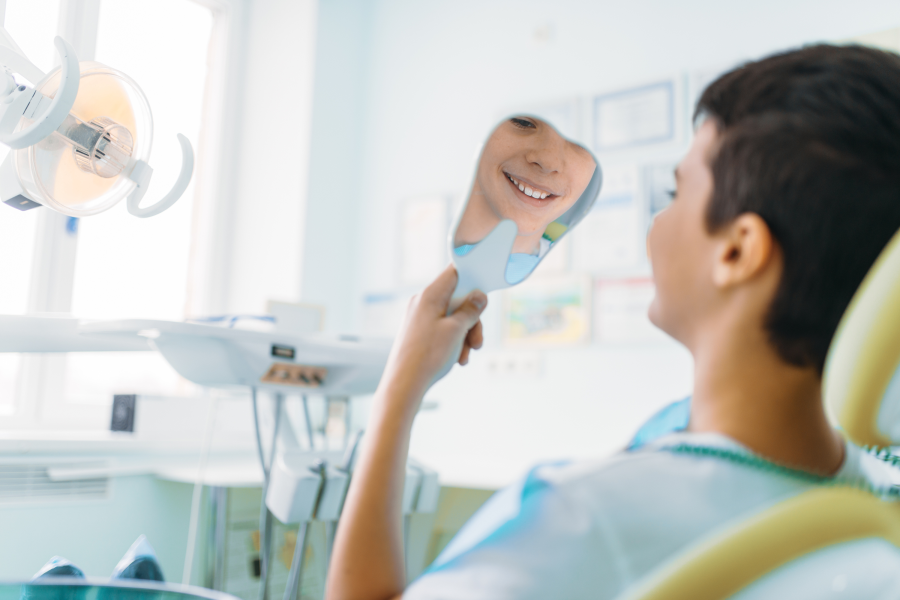February 25, 2021
Get To Know I-Smile™

Children's smiles are always on the mind of Sue Winker. While that's true of every month for Winker, it's especially true in February as we celebrate National Children's Dental Health Month.
As the coordinator for the I-Smile™ program at EveryStep, Winker knows how important dental health is to children's growth and development. But ensuring children's dental health isn't always an easy feat for parents and guardians.
The expense of visiting a dentist - especially for those without insurance - can be too much. That's where I-Smile™ comes in.
In 2020, EveryStep assisted more than 2,538 children and pregnant women to receive dental screenings, oral health education sessions and referrals to providers for dental concerns and emergencies.
Below, Winker details the program and answers some common questions tackled by I-Smile™.
What is I-Smile?
The I-Smile ™ program is an Iowa initiative to help keep kids healthy. I-Smile™ works to prevent cavities before they start, helps parents get kids to the dentist, provide a dental home, and shares information with everyone about how oral health impacts overall health and learning.
Getting uninsured and underinsured children the dental care they need to thrive is the goal of the Iowa Department of Public Health program offered by EveryStep. The I-Smile™ program, which began in 2006, reaches all 99 counties, providing pregnant women and children under the age of 21 with dental screenings and fluoride treatments, referring dental providers, assisting in transportation and payment needs.
Who is involved in I-Smile?
Funding for I-Smile™ comes from several sources including the Iowa Department of Human Services, Iowa Department of Public Health, and the Centers for Medicare and Medicaid Services. There are 23 I-Smile™ coordinators who are licensed dental hygienists working in non-profit organizations throughout Iowa. EveryStep has facilitated the I-Smile™ program in Dallas, Polk, Clinton, and Jackson counties since its inception in 2006.
How does the program work?
The I-Smile program works with low income children to ensure access to oral screenings and fluoride varnish in public health sites (WIC clinics, Head Start, and schools) to prevent disease and lower health care costs and providing a dental referral for the child so that they and their family have a dental provider.
Why is I-Smile an important program in the community?
I-Smile™ is important because tooth decay is preventable and treatment is costly.
Young children with rampant decay often require surgery in an operating room to treat preventable decay. In 2018, Iowa hospitals billed $31 million in medical costs for preventable dental surgeries for children ages five and younger. Children with untreated decay are absent from school, are in pain and unable to eat, have low self esteem, and are not able to grow and thrive or concentrate on learning.
Who might be served by I-Smile?
I-Smile serves low-income children from infancy to 21 years of age.
What are some examples of connections made by I-Smile?
I-Smile ™ works with Early Childhood Iowa, Head Start, WIC, Broadlawns, Primary Health Care, Parents as Teachers, Creative Visions, schools, libraries, and many others.
How would someone become involved with I-Smile?
To become involved is easy- simply email Sue Winker, EveryStep’s I-Smile™ coordinator at swinker@everystep.org or call 515-557-9023.
What would you like others to know about I-Smile?
"I would like others to know that children suffer the same type of dental pain as adults and it is unnecessary and preventable," Winker said. "This greatly impacts every aspect of the child’s growth and development as well as overall health for the rest of their lives."
